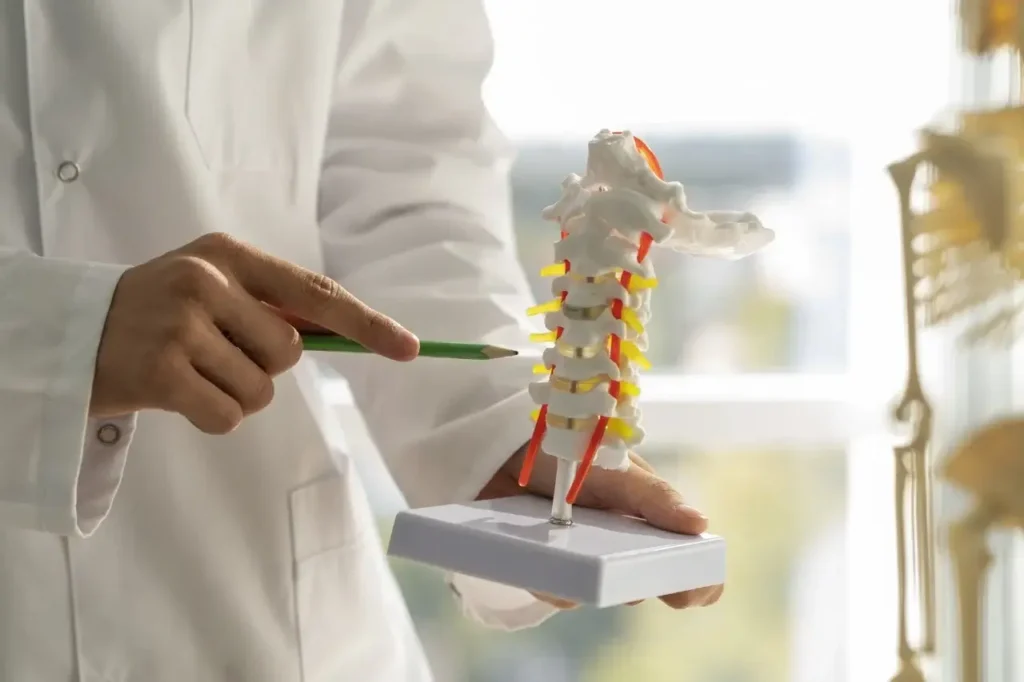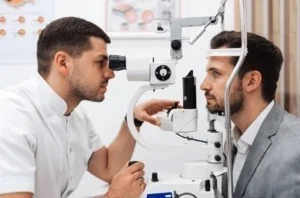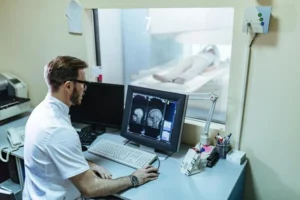Spine Surgery in Mumbai
Are you suffering from chronic back pain, a herniated disc, or a spinal disorder? Finding the right orthopedic surgeon specializing in spine conditions is crucial for effective treatment and long-term relief. At One Stop Healthcare Solution, we connect you with the best spine surgeons in Mumbai and top hospitals for advanced spine surgery in Mumbai. Whether you need a spinal operation, minimally invasive procedures, or complex spondylodesis surgery, we help you find expert care tailored to your condition.
Latest Procedure
Expert Surgeons

Find the Best Spine Surgeons in Mumbai
Suffering from chronic back pain or spinal issues? Spinal problems can arise from conditions like herniated discs, degenerative diseases, or injuries, causing discomfort and limiting mobility. Timely intervention is essential to relieve pain and restore functionality.
At One Stop Healthcare Solution, we connect you with Mumbai’s top spine surgeons who specialize in advanced spinal procedures and best hospitals for spine surgery in mumbai. From the initial diagnosis to personalized treatment plans, our experienced specialists will guide you through each step of your treatment journey. With the latest technologies and surgical techniques, we are committed to your recovery and overall spinal health.
Don’t let back pain hold you back from an active life. Contact us today to find the best spine surgeons in Mumbai and take the first step toward a pain-free future.
Request a Call Back
Spine Surgery: Things To Know
Spine surgery is recommended when conservative treatments like physical therapy, medications, or injections fail to provide relief from conditions such as herniated discs, spinal stenosis, scoliosis, or spinal fractures. Surgery is also considered for severe pain, loss of mobility, or nerve damage.
- Minimally Invasive Spine Surgery (MISS):
This technique involves smaller incisions and advanced technology, such as endoscopes and specialized instruments, to treat spinal conditions. It results in less tissue damage, shorter recovery times, and minimal scarring compared to traditional surgery. - Spinal Fusion:
Spinal fusion surgery involves joining two or more vertebrae to stabilize the spine. It’s commonly used for conditions like degenerative disc disease, scoliosis, or spinal fractures. The procedure helps prevent excessive movement between vertebrae that could cause pain or further damage. - Laminectomy:
Laminectomy is the removal of a small section of the vertebra (the lamina) to relieve pressure on the spinal cord or nerves, typically used to treat conditions like spinal stenosis or herniated discs. This procedure can help reduce pain, numbness, and weakness. - Discectomy:
A discectomy involves removing a portion or the entire damaged disc in the spine, often performed for herniated discs. The goal is to relieve pressure on the nerves and reduce pain, especially in the lower back and legs. - Artificial Disc Replacement:
In this surgery, a damaged or degenerated disc is replaced with an artificial one made of metal and plastic. This procedure helps restore normal movement in the spine and is often performed for patients with disc-related issues who want to avoid spinal fusion. - Spinal Decompression Surgery:
Spinal decompression aims to relieve pressure on the spine or nerves caused by conditions such as herniated discs, spinal stenosis, or bone spurs. It may involve a laminectomy, discectomy, or fusion. - Kyphoplasty and Vertebroplasty:
These are minimally invasive surgeries used to treat vertebral compression fractures caused by osteoporosis. In kyphoplasty, a balloon is inserted into the fractured vertebra to restore its height, followed by the injection of bone cement to stabilize the vertebra. Vertebroplasty involves direct injection of bone cement into the vertebra without the balloon. - Scoliosis Surgery:
Scoliosis surgery is performed to correct abnormal spinal curvature. It typically involves spinal fusion to straighten the spine and prevent further progression of the curve, improving posture and reducing pain. - Foraminotomy:
This procedure involves enlarging the openings in the spine where nerves exit, known as foramina, to relieve pressure on the nerves. It is often done to treat conditions like spinal stenosis or herniated discs. - Posterior Spinal Fusion:
Performed through an incision in the back, this procedure involves fusing two or more vertebrae using bone grafts and metal rods. It is commonly done for spinal deformities or degenerative conditions to stabilize the spine.
Before spine surgery, you’ll undergo a thorough consultation with your doctor, which includes physical exams and imaging tests to determine the best approach. You’ll receive pre-surgery instructions, such as fasting and avoiding certain medications. A medical evaluation, including blood tests and heart monitoring, will check your overall health, and you’ll meet with an anesthesiologist to discuss anesthesia options. It’s also important to arrange for post-surgery care, as recovery may require assistance with daily tasks. Your surgeon will explain the surgery’s risks and benefits, and mentally and physically prepare for the necessary recovery process. Following these steps will ensure the best possible outcome

Minimally Invasive Spine Surgery
Minimally invasive spine surgery (MISS) is a modern approach to treating spine conditions that requires only small incisions, rather than large cuts. Using advanced technology, such as endoscopes and specialized instruments, the surgeon can access the spine with minimal disruption to surrounding tissues. This results in less pain, shorter recovery times, and smaller scars compared to traditional open surgery. MISS can be used to treat a variety of spine issues, including herniated discs, spinal stenosis, and degenerative disc disease. The smaller incisions also reduce the risk of complications and allow for a quicker return to daily activities. If you’re considering spine surgery, minimally invasive techniques may offer a faster and less painful recovery. Contact us to learn more about how MISS can help you regain your mobility and quality of life.
Spine Surgery Procedure Step-by-Step
01

Preoperative Preparation
Before surgery, the patient undergoes a thorough assessment, including physical exams and imaging tests (X-rays, MRIs, CT scans) to determine the exact issue. The surgeon discusses the procedure, risks, and recovery plan with the patient.
02

Anesthesia
The patient is administered anesthesia, either general or local, to ensure they are pain-free and relaxed throughout the surgery.
03

Incision
Based on the condition being treated, the surgeon makes an incision. In minimally invasive spine surgery (MISS), small incisions are made for precise access, while more traditional surgeries may involve larger incisions.
04

Accessing the Spine
The surgeon carefully moves aside surrounding muscles and tissues to reach the spine. In minimally invasive procedures, specialized instruments, such as endoscopes, are used to minimize tissue damage.
05

Treating the Spine Condition
The surgeon performs the necessary procedure, which may involve removing damaged discs, decompressing nerves, stabilizing the spine through fusion, or inserting artificial discs.
06

Spinal Fusion (if required)
For conditions like severe instability or degenerative disc disease, the surgeon may insert a bone graft or implant to fuse two or more vertebrae together, promoting healing and stability.
08

Closing the Incision
After the surgery, the patient is monitored for any complications. Pain management and recovery are closely managed, and the patient begins physical therapy to regain strength and mobility.
09

Recovery and Rehabilitation
Following surgery, patients gradually increase activity levels. Physical therapy plays a key role in restoring movement and flexibility, with a focus on strength-building exercises and spinal stability.
Why Choose One Stop Healthcare Solution for Spine Surgery in Mumbai?
Our team consists of highly skilled and experienced spine surgeons specializing in various spine conditions and advanced surgery techniques, ensuring the best care for every patient.
We offer minimally invasive spine surgery options, which reduce recovery time, minimize scarring, and result in less post-surgery pain compared to traditional methods.
One Stop Healthcare Solution is equipped with the latest medical technologies, including advanced diagnostic tools and cutting-edge surgical equipment, ensuring top-tier treatment and results.
We understand that each patient’s condition is unique. Our spine specialists create individualized treatment plans that are tailored to your specific needs and goals for recovery.
From preoperative consultation and diagnosis to post-surgery recovery and rehabilitation, we provide a comprehensive, holistic approach to spine surgery, ensuring the best possible outcome.
Our spine surgeons have a proven track record of successful surgeries, with many patients experiencing significant improvements in mobility, pain reduction, and overall quality of life.
We prioritize patient comfort and well-being, offering compassionate care, clear communication, and ongoing support throughout your treatment journey.
We accept a wide range of medical insurance and offer flexible financing options, ensuring that quality spine surgery is accessible and affordable for everyone.
Comprehensive Healthcare Services
Integrated Technology
Expert Multidisciplinary Team
Patient-Centered Support
Tele-Health Communication
Preventive Programs
Seamless Access
How to Find the Best Spine Surgeon for Back Pain?
If you’re searching for the best spine specialists near you, One Stop Healthcare Solution makes it simple:
- Connect with top spine surgeons in Mumbai specializing in back pain and spinal disorders.
- Find a spine surgeon for lower back pain who offers both surgical and non-surgical treatment options.
- Choose a trusted hospital for spinal surgery with state-of-the-art facilities and rehabilitation programs.
At One Stop Healthcare Solution, we help you find affordable yet high-quality spinal care at leading hospitals.
Schedule Your Consultation Today!
Looking for a Spine Surgeon? We can help. Book a Consultation with Our Top Spine Surgeons in Mumbai.
Frequently Asked Questions
Spine surgeons in Mumbai treat a variety of conditions including herniated discs, spinal stenosis, scoliosis, spinal fractures, degenerative disc disease, and spinal infections.
Not necessarily. Many cases of back pain can be treated with non-surgical methods such as physical therapy, medication, or injections. Surgery is considered when these options are ineffective or the condition is severe.
Minimally invasive spine surgery involves making smaller incisions and using advanced tools to treat spine conditions with less damage to surrounding tissues. This leads to shorter recovery times and reduced risk of complications.
Recovery times vary depending on the type of surgery and the patient’s overall health. Most people can expect to return to normal activities in 6 to 12 weeks, with full recovery taking several months.
Yes, many health insurance policies cover spine surgeries. It’s advisable to check with your provider and consult with the healthcare team to confirm coverage details.
Like any surgery, spine surgery carries some risks, including infection, bleeding, nerve damage, and complications with anesthesia. However, experienced surgeons minimize these risks through careful planning and advanced techniques.
Post-surgery, patients typically begin with light activities and gradually return to normal activities as the spine heals. Your spine surgeon will provide a personalized rehabilitation plan for a safe recovery.
The success rate of spine surgery depends on the type of surgery and the individual patient’s condition. Generally, spine surgeries have a high success rate, with most patients experiencing significant relief from pain and improved mobility.
The length of the hospital stay depends on the complexity of the surgery. Minimally invasive procedures often require a shorter hospital stay, sometimes just 1-2 days, while more complex surgeries may require longer hospitalization.
Look for a spine surgeon with experience in treating your specific condition, strong patient reviews, and advanced surgical techniques. It’s also important to choose a surgeon who listens to your concerns and provides clear communication throughout the process.
Other Specialties

Proctology
Care for conditions like hemorrhoids, anal fissures, and other rectal issues. It includes diagnosis, minimally invasive procedures, and follow-up care for comfort and recovery.

Orthopedic Treatment
Treatment for joint pain, bone fractures, and muscle problems. It includes tests, non-surgical options, and surgical treatment if needed.

ACL Injury
Care for ACL injuries with treatments like physical therapy, arthroscopic surgery, and ligament reconstruction. It includes diagnosis, personalized treatment plans for full recovery.

Spine Surgery
Surgery for back problems like herniated discs and scoliosis. It includes consultations, surgery, and follow-up care for recovery.

Hip Replacement
Advanced surgery options to fix hip pain and improve mobility. It includes pre-surgery care, surgery, and post-treatment support.

Ligament Tear
Treatment options for torn ligaments, including surgery and therapy. It includes diagnosis, surgery, and rehabilitation for healing.

Ophthalmology
Treatments for vision problems, eye diseases, and regular check-ups. It includes eye exams, treatments, and surgeries for better eye health.

Cataract Surgery
Safe cataract removal surgery for clearer vision. It includes eye tests, surgery, and post-surgery care to help you see better.

LASIK
LASIK surgery for clearer, glasses-free vision. It includes eye tests, laser treatment, and post-surgery care.

Oncology
Treatment for different types of cancer, including surgery, chemotherapy, and radiation. It includes diagnosis, treatment plans, and patient support.

Kidney Stones
Treatment for kidney stones, including laser surgery and other methods. It includes diagnosis, treatment, and recovery support.

Hernia
Care for hernia conditions with treatments like laparoscopic surgery, open repair, and mesh repair includes diagnosis, treatment plans, and post-surgical support for a smooth recovery.

Varicose Vein
Treatments like laser therapy, sclerotherapy, and surgery to improve circulation and ease discomfort. It includes diagnosis, treatment plans, and support before and after treatment.

Knee Replacement
Experience advanced knee replacement surgery with our expert orthopedic surgeons. Trust us for comprehensive care and personalized treatment plans tailored to your needs.

Gall Stone Treatment
Our specialized team offers effective solutions for gallstones, including minimally invasive procedures to remove stones and alleviate discomfort.

Health Checkup in Mumbai
We provide comprehensive health checkup in Mumbai with thorough evaluations, including essential screenings and diagnostic tests, to detect potential health issues early.

Home Health Care Service
Enjoy professional healthcare in the comfort of your home, including nursing care, physiotherapy, and medical assistance.

